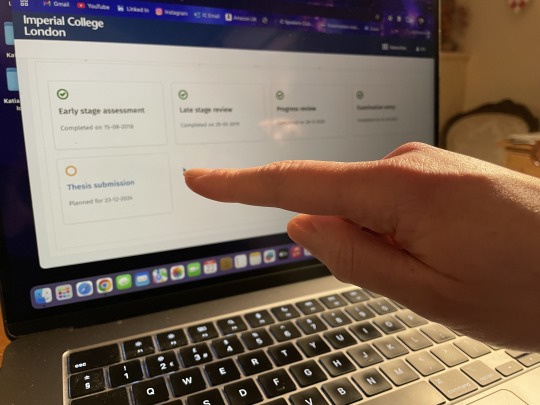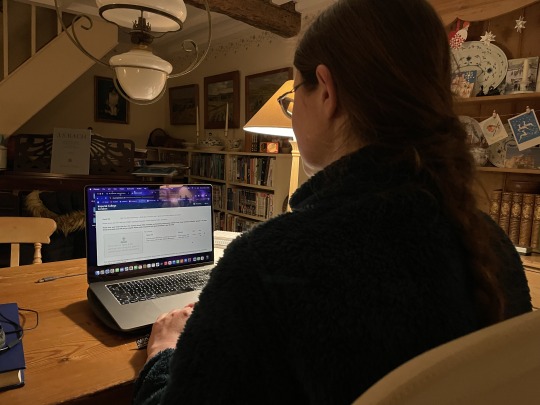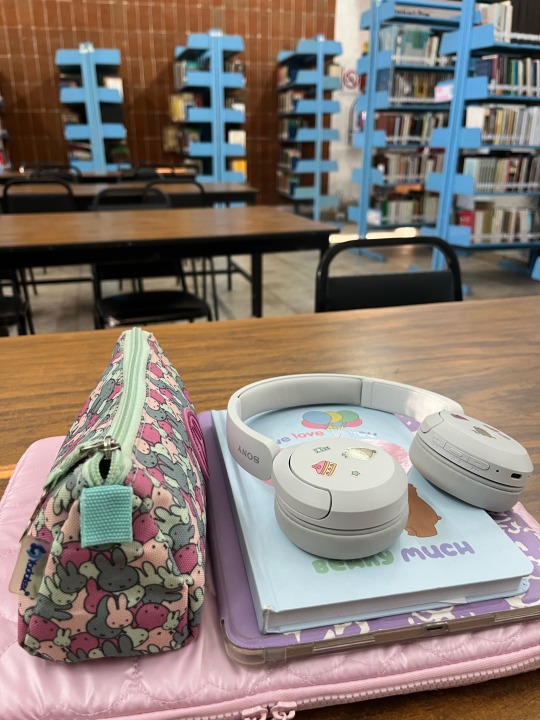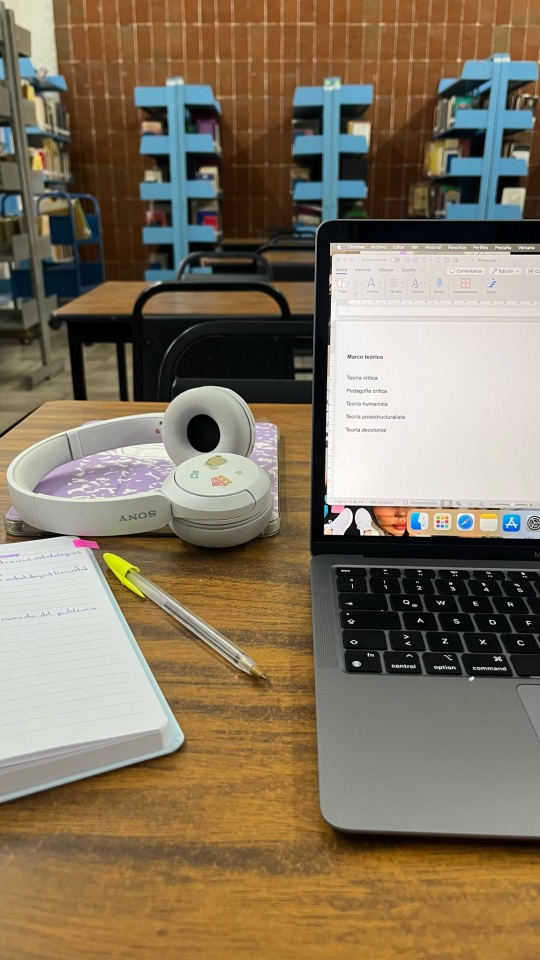#phd thesis students
Explore tagged Tumblr posts
Text

writing a thesis is a hell lot of work. But availing an Expert thesis Writing Service is NOT ! 24*7 assistance, custom paper writing, expert research, AI proof content, what else.
Get your thesis paper done by the best expert writers.
#thesis writing service#best thesis help#academic assignments#uk#thesis paper help online#phd thesis students
0 notes
Text


17.05.2025—anyone else’s sleep schedule goes completely out of the window during essay/exam season?
#studyblr#studyspo#study notes#study motivation#bullet journal#study blog#athenastudying#stationery#studying#study#the phd diaries#heyscholarly#heysprout#heystudyblr#academic#student#college#university#aesthetic#heyghettobarbie#heygen#heybenni#heybirb#heymissawesome#heymann#heymercedes#heypat#study spaces#study space#thesis
198 notes
·
View notes
Text
FDSFDSPOIIUP[ ,MNNM,LKJ NM,,MNLMML DSIOPPOI SDDSASDDSAFDSSDF FDSKJLKNM,NM, P[JKLLKJFDSSDF (translation: "it's 1am and i've been proof-reading my thesis for the last hour and i want to die why am i such a control freak and perfectionist also i'm gonna cry at my thesis defense because wdym i didn't answer the research question it's literally all i did")
#writing#writeblr#studyblr#gradblr#thesis#academic life#phd life#college life#research#academia#proofreading#perfectionism#control freak#crying in the club#thesis defense#grad student struggles#study motivation#late night thoughts#burnout#academic writing
211 notes
·
View notes
Text


Want to be more active on Tumblr now that I'm writing my thesis chapters. I find myself gravitating towards Tumblr's authenticity rather than content exaggeration of other platforms.
Annotations and notes to formulate my chapters.
#seasage posts#seasage thesis talks#study#studyblr#phd english#phdlife#phd journey#phd thesis#gradblr#grad student#aesthetic#mine#school#university
131 notes
·
View notes
Text
i do not get a special award for being the most overworked in the room
i do not get a special award for being the most overworked in the room
i do not get a special award for being the most overworked in the room
#i do not need to be the guy#i do not need to fix it#i do not have to write a phd level thesis#i am in undergrad#I AM AN UNDERGRAD STUDENT#I AM NOT A GRAD SCHOOL STUDENT YET#i do not have to be the one to save the day#i can take a day off#and the world will not explode#and so can you#it is allowed#alder yaps#the horrors persist but so do we#aldercore
77 notes
·
View notes
Text


Today I submitted my PhD thesis.
#katia plant scientist#plant biology#plants#plant science#botany#work from home#green academia#academic aesthetic#cottagecore#christmas#phd life#phd student#phdjourney#phd research#phdblr#grad school#thesis
143 notes
·
View notes
Text
Academia tumblr, how do you find your phd topic?
#i really wanna get a phd in english/american literature or translation studies#dark academia#phd#phd student#phdjourney#phdblr#phd life#phd research#phd thesis help#phd studyblr#phd guidance#academia#studyblr
52 notes
·
View notes
Text



Super early gym moment, protein smoothie on the way and a productive day working on my thesis 🌸💪🏻
#studyspo#fitspo#studyblr#thesis#phd#ipad#ipadpro#goodnotes#gym#fit#smoothies#light academia#vetmed#vetblr#veterinary medicine#medblr#med student#med school
726 notes
·
View notes
Text
Top 6 things I learned in my first 6 months of my PhD
So here I am, 6 months into this thing that I dreamed of doing for years in my undergrad, and at some point even something I thought wasn't going to happen after initial rejections.
In no order:
#1: However long you think it will take to complete a piece of your project or most tasks really, even with a generous estimate, double that time lol
#2: There is literally no point to comparing yourself to your peers, and that is liberating! :) everyone in your cohort and lab has a unique and different background. In my case, I'm an engineer in a room FULL of psychologists and each one of them is so different from the other still! Comparing yourself/your project or your accomplishments to them and theirs makes absolutely no sense :D so remember that always and be free!
#3: If your supervisor(s)* aren't freaking out or nervous about something, whether it's a deadline, milestone, whatever, then neither should you be!! (*assuming good, supportive supervisors)
#4: In the beginning, take advantage of being new and introduce yourself to EVERYONE and at least get an idea of what they do. You never know who may be able to help you with the annoying server, the niche programming package, or a particular difficult method later down the line.
#5: Remember you are a student. Don't be so hard on yourself and think "damn, I should know this already" or "wow how embarassing idk how to do this." Student is part of your title (still applies to candidates), and if you knew these things already, then you'd have the degree already and there'd be no need to venture in and learn anything ;)
#6: Be honest when you are struggling. Even simply to the colleague or lab buddy that says "how's it going?" I can't tell you how many times I've been vulnerable and said "actually this weekend I had a little cry because I was homesick" and my buddy gives me a hug, and I feel SO much better afterward. Or my colleague shares a similar story and I don't feel so alone :) support systems are everything in this journey!
Some of these were told to me by our most senior PhD (now postdoc) in our lab, and they ring true. I try to keep these all in mind when I am stressed or struggling, and they have helped immensely.
83 notes
·
View notes
Note
Please do a whole post about phd applications, funding applications, fellowships, TAships etc. Would love your take on it. Thanks
I'm chronically horrible at responding to asks, so this is coming later than you probably expected!
For context, I'm now a second year PhD art history student about to take her doctoral (comprehensive) exams in April. I applied for PhD programs during the last semester of my master's program, which was a terminal degree through a different university than the one I currently attend.
I applied to two PhD programs in the United States and two in the United Kingdom: the processes are different, particularly when it comes to funding. The former will automatically consider you for funding and it's expected, at least in the humanities, that they will grant you tuition remission and a stipend for at least four years (potentially more, depending on your particular program). It's also possible to win additional fellowships, either through your university or a third party. For example, I have departmental funding (ie. a stipend that I receive for being a Graduate Assistant) and an outside fellowship from my university's Graduate School. My department applied for that fellowship on my behalf before I even enrolled. The other American university to which I applied also offered me tuition remission and a stipend, but it was less than the university I currently attend.
Two general notes about funding in the United States: (1) it often changes to account for rising cost of living but that does not necessarily mean you will be making a living wage, and (2) it often changes depending on whether your school has a Union. Graduate workers at my university are currently working to unionize, which would not only guarantee a living wage for union members but also offer protections for international students and student parents. There are a lot of benefits but the TLDR for funding is that unionizing often means the difference between $28,000 and $45,000 yearly stipend (see this article from the Boston Herald about BU's graduate student union). Graduate Assistants are often not allowed to hold a second job outside of the university and it's also difficult to do so when you are (a) working, (b) completing coursework, and (c) independently researching. My museum fellowship, which I'm due to begin in a couple days, jeopardized my funding status and I had to fight my university for them not to take away my fellowship. It ultimately worked out because I had my department chair's support but not all students are similarly supported—and not all departments are willing to advocate for their students.
Pivoting to UK schools: the TLDR is that they offer very little funding for international students and the funding that is available, either through the institutions themselves or outside organizations, is often not enough to cover the cost of living. Tuition is largely cheaper than in America but the difference was not significant enough for it to factor into my decision. If you're interested in more detail, I'd recommend reaching out to @therepublicofletters who actually attends a UK institution. She can also tell you more about how their programs are structured. Unlike American PhD programs—which involve at least two years of coursework, doctoral exams, and graduate assistantships before defending your prospectus and beginning dissertation research—UK programs ask you to apply with a prospectus that you will use as the basis for dissertation research that you begin immediately upon entry. The difference is that American programs typically take 5-7 years to complete whereas UK ones are only 3-4 years. While this may seem convenient in the short term, I was advised that American institutions (museums, universities, etc) often prefer PhDs from American institutions because of the extra work completed.
Setting aside this technical information, I chose the four programs to which I applied based on vibes. I had a master list of schools and advisors and I contacted each one to see if we fit in terms of academic interests and personalities. I did not want to work with an advisor I didn't like and who didn't like me—or who had so many students that they had no time for me. Aside from speaking with them personally, I also reached out to their current advisees: students will often give you a more honest perspective on faculty and the department as a whole. I would almost lend more weight to what the students say than any of the professors because they are and/or will be your peers. They are also the people who will give you the most honest information about how professors and the department view students of color, women, queer students, etc. Art history and the humanities are fairly white, straight, and male dominated, so it's important to get a read on how non-normative (for lack of a better collective term) individuals are treated. I used this information to narrow down my master list to four schools, each of which I would be happy to attend. Whether I was admitted to one or to all four, I would have a place to go where I would be content and able to find community.
This is a personal note but something to consider when it comes to advisors is gender. That should not be a determining factor but I realized after committing to my current school that this is the first time I've worked with a male advisor. I love him dearly and he is one of the most encouraging scholars I have met but there have been occasions where there is a disconnect based on life experience. That said, I know many people who have had no issues at all!
Throughout this whole process, the name value of the schools was functionally irrelevant. In my experience—and that of the numerous individuals who advised me during the application process—your advisor is far more important than your school. While this will necessarily vary by discipline, you want to work with someone who has connections and/or knows how to network. For example, an older scholar will likely know everyone and their mother whereas a younger scholar will know fewer people but likely be more present at conferences, etc.
In the end, what matters most is your happiness and stability. Will you like working with your chosen advisor? Will you like taking classes in other disciplines within your department? Will you be able to make friends and/or have civil relationships with other graduate students (ie. will people steal books you need because they know you need them, like at Columbia)? Can you afford to live in whatever city in which you school is located? Are they paying you a living wage and/or offering you alternate opportunities to apply for funding?
I chose my school based on the graduate community, my advisors (I now have two), and the funding package. There have been incidental issues that I could not have anticipated, but on the whole, I do not regret my decision because I prioritized my happiness when I was applying and did not make decisions based on what I thought other people would want. This is a huge commitment and you need to be self-motivated, to rely on your love of the subject, to make it through the hard times.
My last bit of advice, which I received from my undergraduate advisor: don't go into debt for art history! If a program isn't paying you and/or isn't paying you enough, then they're not worth your time. Know your worth and ask for what you deserve, never be afraid to negotiate funding.
Let me know if y'all have any other questions! This was a long one but I hope it was helpful.
#art history#history#phd research#phd life#phdblr#phd student#phdjourney#higher education#university#student#student life#studying#studyblr#art study#study motivation#application#funding#phd thesis#dissertation#school#college#academics#dark academia#light academia#art academia#academia aesthetic#chaotic academia#am still on my bullshit about women#historical women
33 notes
·
View notes
Text
quick question to the lit majors/scholars:
what comes after postmodernism? is it metamodernism or something else? if so, what are the recurring narrative styles/genres that sets it apart from postmodernism?
welp.
pls share this with your well-read friends who might know the answer. i wanna know everyone’s opinions.
#literature#english lit studyblr#studyblr#study blog#literature memes#english lit memes#english lit student#lit major#literary criticism#english literature#literary theory#literary fiction#english#postmodernism#metamodernism#lit#real academia#academia#art academia#literature major#phdblr#phd life#phdjourney#phd research#phd student#phd thesis help#phd adventures#phd candidate#phd guidance#phd studyblr
32 notes
·
View notes
Text


Doing a PhD during the Christmas season just feels wrong :(
#studyblr#study motivation#studyspo#study blog#study notes#study aesthetic#phd student#phdblr#phdjourney#phd thesis#phd life
22 notes
·
View notes
Text
that's it, it's submitted. now to wait and hope the examiners are kind...
9 notes
·
View notes
Text
if i was allowed to do unethical experiments on a massive amount of people i would create a fake mental illness/symptom and post abt it online as if its real (and since this is a hypothetical its guaranteed to blow up and get big ok.) and see how fast it caught on and how many people i could convince to believe in it. i would also make sure there was no Convincing / Reputable-appearing documentation of it existing I would write some articles for common pop psych sites but if you followed the trail it would lead back to a) articles abt something vaguely related but notably not related to my new Disorder and ppl would use it to say “see? it’s totally real and it’s ableist to say it isnt” (bc they didnt actually read the article lmao) and b) like, a carrd or something. And i’d see which tiktok therapists etc start talking abt it And how many people would start genuinely believing they have it. And how many people would start showing actual genuine symptoms if it due to believing they have it. Basically i want to cause a bit of mass hysteria to satiate my own curiosity. But i cant. Cuz of woke. and ethics committees.
#text#no specifics but this is based off something that Did happen and i still see the term around sometimes#except the term was made by social media users and not. an unethical psychology student#not giving specifics bc a) i dont like when people get mad at me and b) in the imaginary world where i get a phd thats what id#write my thesis on probably
15 notes
·
View notes
Text

Days until thesis submission: 102
I’m struggling with motivation and mental health leading up to my thesis submission so I thought I’d make a countdown of sorts! Every day I’m going to post my productivity and something that made me smile to help keep me going! My submission date is August 31st so it works pretty well with the 100 days of productivity challenge too, feel free to join :)
#thesis countdown#thephdmedic#qpcr#mbphd#thesis#lab work#phd studyblr#phd diary#phd stuff#phd student#100 days of productivity#studyspo#studyblr
7 notes
·
View notes
Text
idk how this would work in the OIAR bc i just feel like they wouldn’t let anyone from outside look at their files, but i think it would be really funny to have like. a college age researcher show up to the og magnus institute or the OIAR who’s like studying the paranormal or folklore or some shit (cue guy with an actual degree in parapsychology which makes martin shit himself when he tries to start conversation HELPP) who’s just like oh hi guys this is my honors project! :) can i look at some spooky stories? 🤗 and the OIAR/MI staff are like NO. DO NOT LOOK INTO THIS ANY FURTHER RUN FOR YOUR LIFE. but i feel like elias would 100% require that they help this person out, bc he’s evil and he’d want a fear to eat them, and like… it’s just funny to imagine like. the staff trying to keep the true nature of the institute/OIAR away from this totally clueless 22/25 year old and feeding them the silliest statements possible that don’t connect at all to throw them off track so this poor kid is confused and hopefully gives up. but also kinda bittersweet imagining them all coming together to protect a stranger from falling into a world they can no longer escape… the old “it’s too late for me but it’s not too late for you” makes my heart hurt
#they interact w kids in the show and old ppl but they never rly interact w teenagers or actually college students#and i feel like i TOTALLY know people who would ask the institute to see their files like. as an undergrad honors thesis#or a phd defense or something#and like. seeing the research get stymied and the poor kid get frustrated would be kind of sad bc i while researching some niche topics#the institute would be like a treasure trove#and info on contemporary supernatural beliefs is kind of hard to find#but like the tma cast especially—who treated each other terribly—having to band together for the common goal of driving the intern out#what if it was a bonding experience. what if they came together about it#but someone curious enough to seek out the magnus institute is already a little doomed#so how could they prevent that person from finding anything real?#the feeling of hopelessness in tma is so pervasive bc the staff can’t escape. but what if someone else could…#the magnus archives#the magnus protocol#tmagp#tma podcast#the magnus institute#story ideas
43 notes
·
View notes